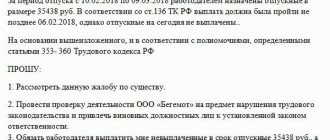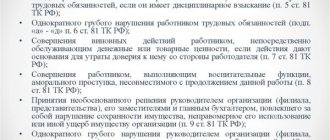Composition and description of the crime
A person who was 16 years old at the time the crime was committed (the subject of the crime) is subject to liability. As a rule, obscene statements addressed to police officers are always made with direct intent, and the main motives are resentment, revenge, unwillingness to comply with the lawful demands of the police officer and the most common hooliganism. In most cases, people who behave rudely with the police are in a state of drug or alcohol intoxication; there are often situations when insulting law enforcement officers occurs by teenagers who are not aware of their insolence.
- The object of the crime is the authority of state authorities or local administration. An additional object is the honor and dignity of a government representative (in the described case, an employee of the internal affairs bodies).
- The objective side of the crime is humiliation of honor and dignity. In this case, a necessary sign of the objective side is the publicity of the crime.
- The corpus delicti is considered formal. The crime is completed at the moment the offender publicly utters offensive words, regardless of the consequences of the act.
What criteria are used to determine the composition of a crime?
The offense consists of a citizen using obscene/abusive language, expressed orally or in writing, towards a government official. Some statements are classified as insulting a police officer in execution; this may be a written expression of truthful information about the case. The essence of the violation is that one person insults the personality of another; the aggravating factor is considered to be the direction of actions towards the authorities. Punishment for this is provided due to the fact that offensive actions discredit not only the individual, but also interfere with the full performance of one’s functional duties. The same applies to the system as a whole.
Attention! The corpus delicti is determined if unflattering statements were made publicly. This is where discredit lies.
The punishment for insulting a police officer is determined by the court. The following objective characteristics of the crime are distinguished:
- whether the offended citizen has a representative office or corresponds to the status of an official;
- the presence of third parties at the time of the insult, which determines its public nature;
- specifics of an indecent phrase.
The form and severity of punishment depends on factors such as the place and time of the incident, the form of expression, and the targeting of the victim. As for the subjective side of the described crime, it usually implies direct intent, motive and guilt. In this case, the subjects of the offense are legally capable persons who have reached the age of 16.
The degree of responsibility directly depends on the type of motivation. Typical situations:
- a government representative/official can independently provoke aggression from an ordinary citizen against him;
- the perpetrator of the offense responded unflatteringly to an appropriate remark;
- interfered with the performance of duties by an official;
- I was in a drunken state and was having fun this way.
Each of these cases has completely different consequences.
Punishment for insulting a police officer under article
Please note that the sanctions of Art. 319 of the Criminal Code of the Russian Federation can be applied only when an insult is caused while the victim is on duty, or they have a direct connection with his activities (for example, they relate to the conduct of operational activities in a criminal case).
When an insult occurs in conditions not related to work (outside of duty, on vacation or at home), then the actions of the perpetrator will be qualified under Article 130 of the Criminal Code of the Russian Federation or will fall under administrative liability under 5.61 of the Code of Administrative Offenses of the Russian Federation and can be considered in a civil manner.
Attention! Need protection? Ask a question in the form, go to the legal assistance , go, today for free !
According to Article 319 of the Criminal Code, for insulting a police officer in a public place, while he is on duty, or in connection with the performance of his official duties, the guilty person may be assigned a significant fine (up to 40 thousand rubles), or from the salary for a period of up to 3 months, corrective labor for a period of up to 1 year, or compulsory work - up to 360 hours.
The nuances of bringing to responsibility
It should be noted that it is possible to insult a police officer in various circumstances, and the penalties will vary significantly depending on this. So, the measures applied to the violator depend on when the Interior Ministry employee was insulted:
- during the performance of official duties;
- outside working hours.
Criminal liability under Art. 319 of the Criminal Code of the Russian Federation is provided only for those situations where a police officer was insulted while on duty.
If the victim was on vacation (that is, not at work, but, for example, he had a conflict on his day off or after the end of the working day), criminal punishment is not applied, despite the fact of serving in the police.
For such situations there is another rule - Art. 5.61 Code of Administrative Offenses of the Russian Federation. This rule is good news for violators. For example, if you insulted a person during a traffic conflict, and he turned out to be a police officer, but not on duty, you will be held administratively, not criminally, liable.
Let's summarize. Insulting police officers during execution is a serious violation of the law, punishable by the Criminal Code of the Russian Federation.
If you are accused of insulting a police officer, we recommend that you enlist the help of a lawyer as soon as possible. This will avoid wrong steps and increase the chances of imposing a minimum sentence.
Sources:
Insulting a government official
Insult
Insulting a traffic police officer
Any of the drivers of the vehicle, when stopped by the State Traffic Inspectorate, at least once, did not agree with their actions. Often, car enthusiasts do not skimp on emotions and do not try to restrain negative impulses. But it is better not to forget about the criminal liability that threatens for insulting traffic police officers while on duty. Therefore, if you do not agree with their actions, or they extort a bribe, it is better to report this by calling the traffic police service and not try to argue with representatives of the law.
IMPORTANT: Dissatisfaction expressed in a correct form, for example, with the words “You are an incompetent traffic police officer,” will not constitute an insult.
You need to realize that when communicating with police officers, you must behave correctly, calmly and avoid verbal attacks against them. Even if it seems that the actions of law enforcement officers against you are unlawful, you need to call the hotline of the Ministry of Internal Affairs and leave a complaint, you can contact the police officer directly, as well as the prosecutor’s office.
By the way, according to statistics, it is traffic police officers who most often encounter rude expressions addressed to them.
What may be mitigating and aggravating circumstances?
Cases of insulting a police officer during execution are considered taking into account mitigating circumstances, which may include the following:
- the violator has not previously been charged under Article 319 of the Criminal Code of the Russian Federation or other similar administrative offenses;
- the offender’s behavior was provoked by unqualified actions of a police officer;
- the insult happened after the policeman exceeded his official authority.
Please pay attention! A possible option to avoid punishment is to reconcile with the injured party. That is, you can ask for forgiveness from the policeman, and the criminal case will be closed by agreement of both parties.
Of course, in addition to mitigating factors, the court also takes into account aggravating circumstances. For example, uttering insults to a police officer while intoxicated or for the purpose of having fun may be considered such.
Other Features
A person who insults a police officer can be held accountable only if the police officer was on duty at that moment . If a citizen insulted a law enforcement officer after hours, when he was not on duty (for example, it was a day off), it will not be possible to punish him under Article 319 of the Criminal Code of the Russian Federation.
In addition, in order for a person to be held accountable under Article 319 of the Criminal Code of the Russian Federation, the following conditions must be satisfied:
- The person who insulted the police officer must be over sixteen years of age;
- Publicity of the criminal act, i.e. in the presence of witnesses;
- Intent. It must be proven that the attacker insulted the police officer intentionally, not pursuing the goal of constructive criticism, but guided by hooligan motives (resentment, hatred, revenge);
- Intentional/unintentional. Quite often, citizens insult police officers while under the influence of alcohol, drugs or other psychotropic substances;
- A form of insult. Thus, there are oral and written forms of insult. Oral, when a citizen expresses what he thinks directly to the face of a law enforcement officer. The written form implies a note, letter, publication in a newspaper, Internet sources, etc.;
InfoThe seriousness of this crime lies in the deep undermining of the authority of not only the individual employee, but also the entire law enforcement agency.
Examples of situations falling under Article 319 of the Criminal Code of the Russian Federation
- Citizen V., while buying alcohol at a roadside store, quarreled with the seller, as he was under the influence of previously drunk alcohol. The seller called the police. Arriving police officers, in response to legal demands, heard obscene language addressed to them, and the offender attempted to attack one of the policemen. At the trial, CCTV cameras and witness testimony confirmed that the culprit had indeed publicly insulted law enforcement officers, and therefore a sentence was passed not only under Article 319, but also under Article 318 of the Criminal Code of the Russian Federation (assault on a police officer). As a result, he received a suspended sentence and a fine of 5,000 rubles.
- Citizen S., brought to the police department, committed four crimes at once over a period of several hours. Three of them are insulting police officers. One - when detained for petty theft, two - directly at the police department. Citizen S. not only expressed gross insults to the police officers performing their duties, but also attacked them with his fists, striking them in the face. For each of three crimes of the same type, the court imposed correctional labor for up to 8 months.
Author of the article
Dmitry Leonov
Work experience 15 years, specialization - housing, family, inheritance, land, criminal cases.
Author's rating
721
Articles written
712
about the author
Useful information on criminal cases
- Prosecution for libel
- Article for libel on the Internet
- False report of rape
- Defense against libel
- Charge of libel
- Theft accusation without evidence
- Sue for personal insult
- Personal insult complaint
- Fine for libel
- Liability for slander of an official
- Violent actions - Article 132 of the Criminal Code of the Russian Federation
- If the boss yells and humiliates: where to complain?
- Insulting a minor child: article
- Neighbor threatens violence: what to do
- Responsibility for violation of confidentiality of correspondence
- Libel lawsuit
- Punishment for public insult to a person
- Does a teacher have the right to insult a student?
- Infringement of the rights of minor children
- Attempted rape
- Blackmail on the Internet - Article 163 of the Criminal Code of the Russian Federation
- Rape charge
- Responsibility for non-payment of wages
- Criminal liability for violation of privacy
- What to do if you receive threats over the phone
- Punishment for knowingly false testimony
- Sample statement about threat to life
- Insulting a police officer while on duty









